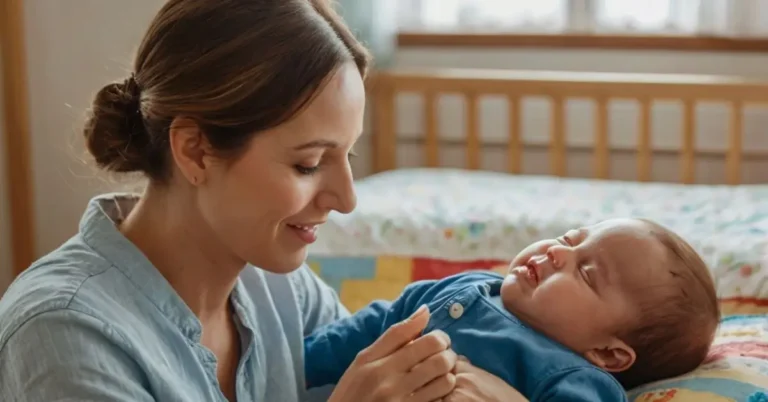Sudden Infant Death Syndrome (SIDS) is one of the most heartbreaking tragedies any parent or caregiver can experience. It’s a sudden, unexpected death of an infant under one year of age, typically during sleep, and it remains unexplained even after a thorough investigation. The fear of facing legal consequences after such an event can be overwhelming for babysitters. In such cases, consulting Albuquerque wrongful death attorneys can provide essential guidance. This guide aims to clarify whether a babysitter could face jail time for wrongful death if an infant dies from SIDS while under their care.
What is SIDS, and Why Does it Happen?
SIDS is often referred to as “crib death” because it usually happens while the baby is sleeping. While the exact cause remains unknown, several factors are believed to contribute to the risk. These include:
- Sleep Environment: Babies are placed on their stomachs or in an environment with soft bedding.
- Maternal Factors: Maternal smoking during pregnancy, young maternal age, and inadequate prenatal care.
- Infant Factors: Low birth weight, respiratory infections, and genetic vulnerability.
Though SIDS is a well-recognized medical condition, understanding its causes and risk factors can be crucial in determining liability in legal cases.
Legal Responsibilities of Babysitters
Like other caregivers, babysitters are expected to provide a reasonable standard of care. This means taking all necessary precautions to ensure the infant’s safety, adhering to recommended guidelines such as placing babies on their backs to sleep and maintaining a safe sleep environment.
In legal terms, the duty of care refers to the responsibility one has to avoid causing harm to others. For babysitters, this duty involves:
- Following Sleep Safety Guidelines: Ensuring the infant sleeps on their back.
- Monitoring the Infant: Regularly checking on the baby during their sleep.
- Creating a Safe Environment: Keeping the crib free of pillows, blankets, and stuffed animals that could pose suffocation risks.
If these guidelines and precautions are followed, the babysitter is generally deemed to have provided a reasonable standard of care.
Wrongful Death and Criminal Liability
The concept of wrongful death arises when someone dies due to the negligent actions of another person. In the context of SIDS, wrongful death suits may be filed by the parents against the babysitter if they believe negligence played a role in the infant’s death. In such cases, Albuquerque wrongful death attorneys can provide valuable guidance. However, proving negligence in SIDS cases can be particularly challenging due to the unexplained nature of the syndrome.
A babysitter could potentially be held liable if:
- Gross Negligence is Proven: This would involve a severe deviation from accepted standards of care, such as placing the baby to sleep on their stomach despite explicit instructions not to do so.
- Violation of Specific Instructions: Ignoring specific sleep safety instructions provided by the parents.
- Lack of Proper Supervision: Demonstrating carelessness by failing to check on the infant for extended periods.
- If found liable in a civil court, the babysitter might face financial penalties but not necessarily criminal charges.
Criminal Charges and Jail Time
Criminal charges, such as manslaughter or child endangerment, are much more severe and require proof of intent or gross negligence. For a babysitter to face jail time, the prosecution would need to demonstrate beyond a reasonable doubt that the babysitter’s actions directly led to the infant’s death due to gross negligence or intentional harm. Given the enigmatic nature of SIDS, such evidence is challenging to obtain.
In most real-world scenarios, babysitters are not criminally charged for deaths resulting from SIDS, provided they follow standard safety guidelines and act responsibly. However, each case is unique, and outcomes can vary based on specific circumstances and jurisdictional laws.
Protecting Yourself as a Babysitter
To avoid potential legal issues, babysitters should:
- Educate Themselves: Understand and follow all recommended safety guidelines for infant care.
- Communicate with Parents: Discuss safety practices and any specific concerns or instructions from the parents.
- Document Everything: Keep records of sleep times, feeding schedules, and any notable observations to provide evidence of proper care.
By taking these steps, babysitters can help ensure they provide the best care while protecting themselves from potential legal repercussions.
Conclusion
While the sudden occurrence of SIDS is a devastating experience, it is crucial to understand that babysitters are rarely held criminally liable if they have adhered to established guidelines and acted responsibly. The key lies in maintaining a high standard of care, clear communication with parents, and thorough documentation to demonstrate that all reasonable steps were taken to ensure the infant’s safety. Through these practices, babysitters can offer peace of mind to themselves and the families they serve during such tragic and challenging times.

